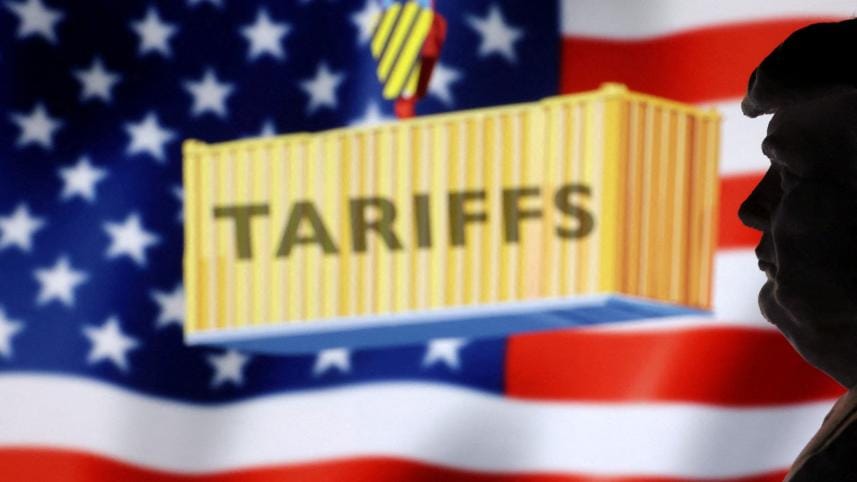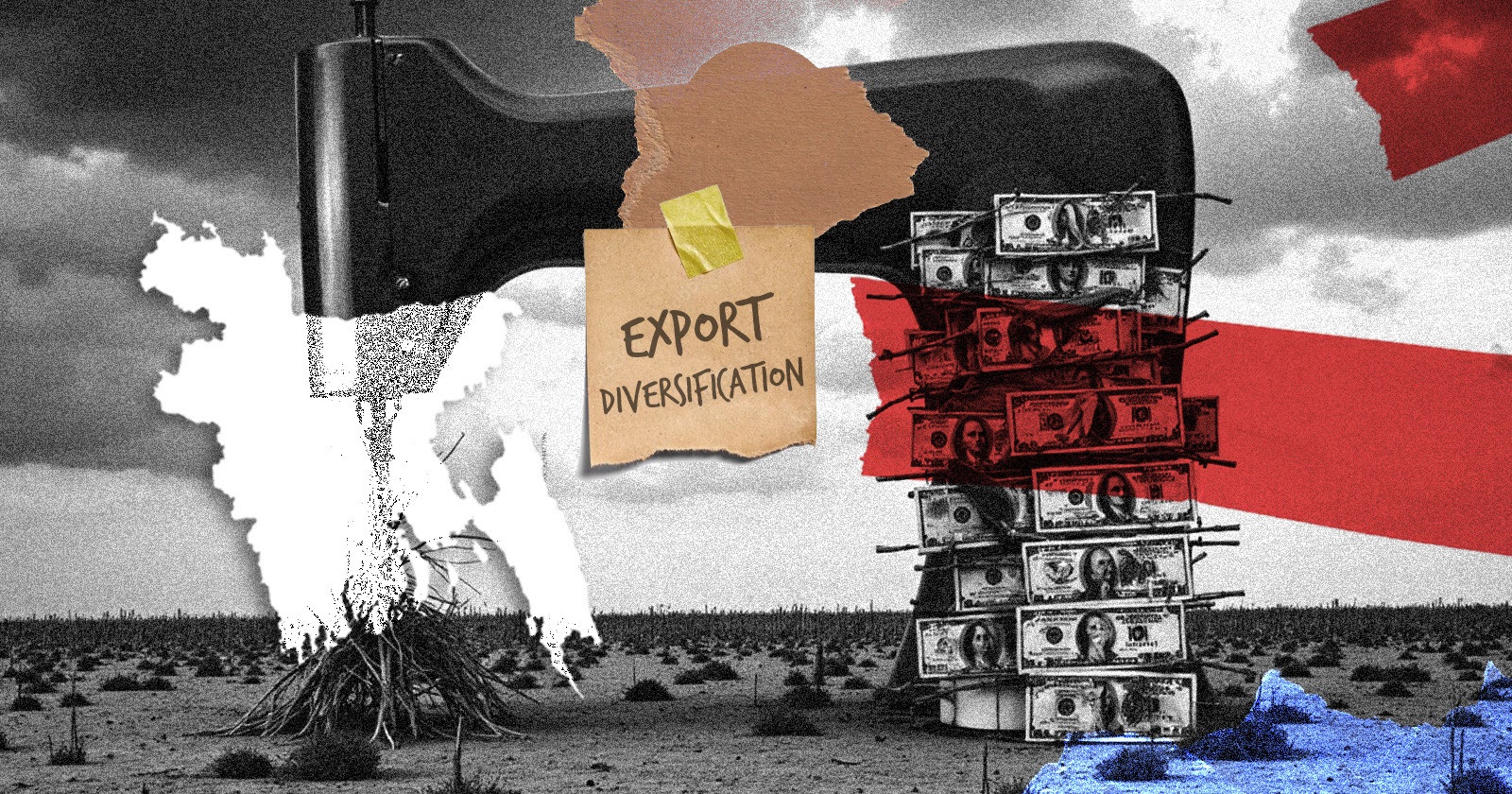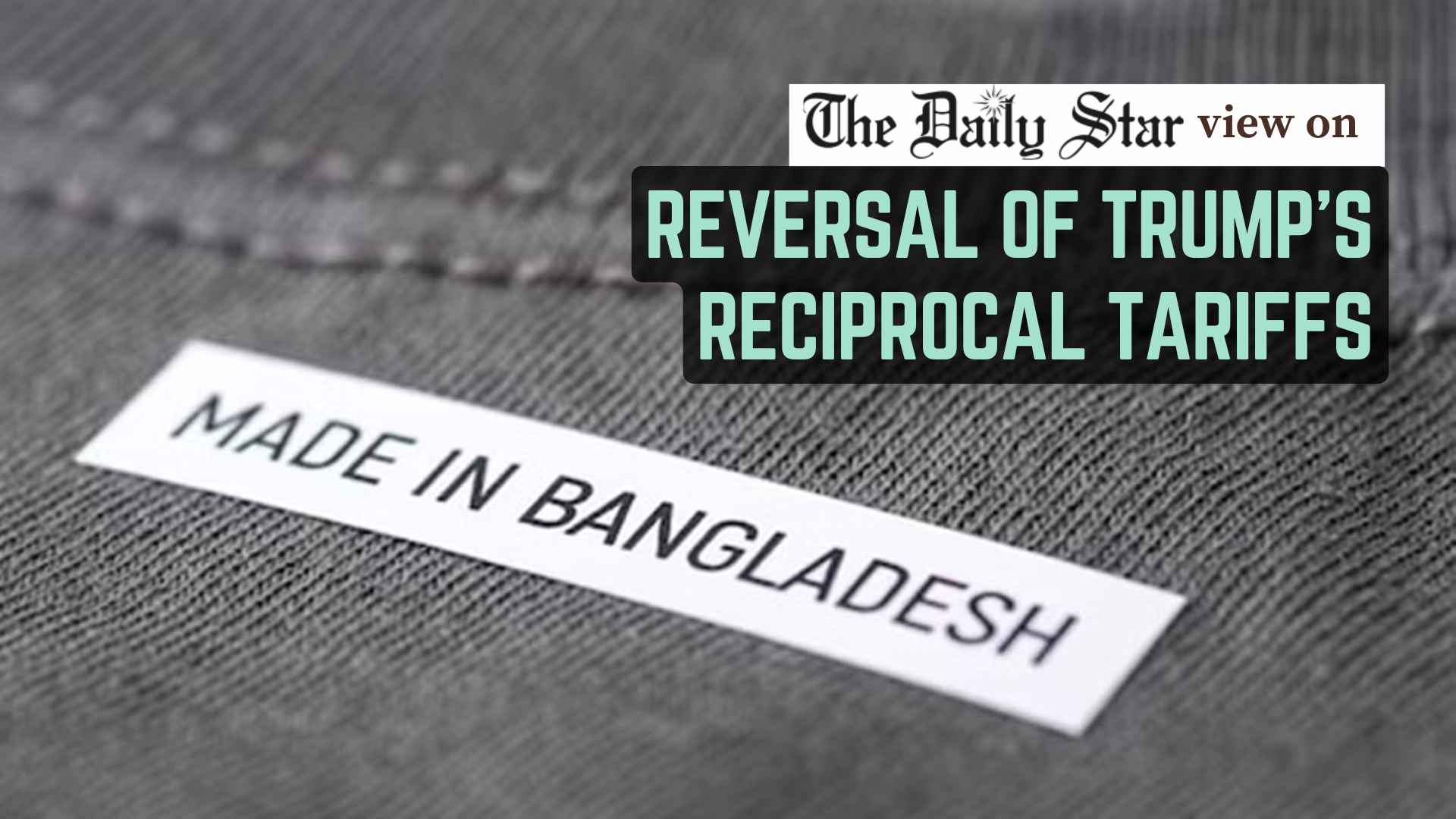Tariffquake: Why Bangladesh economy must diversify or fall

It hasn't been just a tremor; it's been a tectonic shock. The announcement from Washington, imposing a 35 percent reciprocal tariff (down from the initial 37 percent announced in April), has not only shaken Bangladesh's industrial heartland, but has presented a moment of reckoning: a sudden, challenging test of a nation's resilience, where the lifeblood of an entire economy is now under severe strain.
The numbers tell a stark story. Over 800 enterprises, their fortunes tethered to the American consumer, are now at "high risk." For a core group of 168 companies that ship every single product they make to the US, the tariff isn't a headwind; it threatens their very survival. We are talking about a torrent of commerce—a staggering $5.05 billion from companies exporting to the US last year—now slammed against a formidable wall. The competitive arithmetic is just as grim. An existing average duty of around 15 percent is now compounded by the staggering 35 percent levy, creating a crippling 50 percent total tariff.
But this crisis was not inevitable. Vietnam acted, while Bangladesh waited. The result is a chasm. When Vietnam deftly navigated the diplomatic storm to secure a far more manageable 20 percent tariff, Bangladesh was left facing a significant loss of advantage.
Economists are calling it a "harsh economic blow," a contagion that will likely spread from apparels to footwear, furniture to food products. It threatens a social crisis of mass job losses—a devastating prospect for millions of female workers, often their families' sole breadwinners. The immediate plunge of the Dhaka Stock Exchange was merely the first, nervous tremor of a much larger economic earthquake to come.
On the frontlines, the despair is palpable. For the managing director of an apparel manufacturing company, a three-decade relationship with US buyers is on the verge of collapse. This sentiment is echoed by another leader in the RMG industry, who has warned of an existential crisis for his US-exclusive firms. This dread extends beyond RMG, as the leader of an agro-processing firm has described how the mere threat of tariffs months ago was enough for US buyers to suspend orders. Compounding this market anxiety is a deep-seated frustration, with the managing director of another export-oriented business lamenting the government's "significant shortcoming" in failing to negotiate with its US counterpart effectively, or even consult the very industry it is supposed to protect.
The question, then, becomes a critical one: how did a nation so dependent on a single market find itself so unprepared? The answer is a story of diplomatic miscalculations and critical oversights. Instead of rapid engagement, Dhaka chose what officials called a "strategy of proceeding slowly," a serious misstep based on misreading signals from Washington. While Bangladesh waited, its competitors acted. As one top exporter put it, the inability to secure a better deal was nothing short of a "complete failure" by the government. The very engine of its export economy—the private sector—was left idling on the sidelines, its expertise and its pleas to hire professional US-based lobbyists ignored. Worse still, the diplomatic strategy was built on a weak foundation. The hope that its Least Developed Country (LDC) status would garner sympathy met with the cold wall of realpolitik; as analysts have long known, Washington has not historically been sentimental in its trade dealings.
Of course, the crisis was ignited by a volatile mix of doctrine and drama emanating from the White House. But Washington's unpredictable policy environment does not excuse Dhaka's lack of preparation. Officially, the move is textbook Trump: a demand for "reciprocity" against a "long-standing and very persistent" trade deficit. But behind this narrative lies a chaotic reality of policy by social media and what one insider dismissed as a "theatrical show." The signals from Washington may have been erratic, but they demanded an agile and coherent response—a response Dhaka failed to deliver.
Bangladesh now stands at a critical crossroads where the wrong turn risks significant marginalisation. But the path forward, while challenging, is not closed. A three-pronged strategy is emerging from the crisis. First, diplomacy must be reignited—not with the slow pace of the past, but with the fierce urgency of a fire crew. The call to appoint professional lobbyists must finally be heeded. Second, the Vietnam playbook must be examined and adopted. Bold, strategic concessions—from zero-duty access for US-made goods to purchasing high-value products like Boeing aircraft and LNG—are no longer just diplomatic gestures. They are strategic necessities.
And then comes the truth we have dodged for decades: this tariff shock is not just pain. It's a mirror. It's the final alarm. We built an entire economy on one thread, one market, one sector—and now that thread is strained. If we don't diversify our export basket—including pharmaceuticals, IT, agro-processing, and other vital sectors—our competitive position will become untenable. This is the reckoning, and we are out of excuses. Ambitious investment in these new areas must be accelerated, and new trade alliances must be forged with relentless determination.
This 35 percent reciprocal tariff by the US is more than a policy decision; it is a crucible. It is a defining moment that has brutally exposed the vulnerabilities of an economy and the shortcomings of its custodians. The coming weeks will determine whether Bangladesh can write a new chapter of resilience, or if this becomes a cautionary tale of a crisis that was as much made as it was met.
Maj (retd) Md Badrul Alam Siddiqui, PhD is head of operations at Millennium Certis Security Bangladesh Ltd. He can be reached at siddiqui1964@gmail.com.
Views expressed in this article are the author's own.
Follow The Daily Star Opinion on Facebook for the latest opinions, commentaries and analyses by experts and professionals. To contribute your article or letter to The Daily Star Opinion, see our guidelines for submission.




 For all latest news, follow The Daily Star's Google News channel.
For all latest news, follow The Daily Star's Google News channel. 


Comments